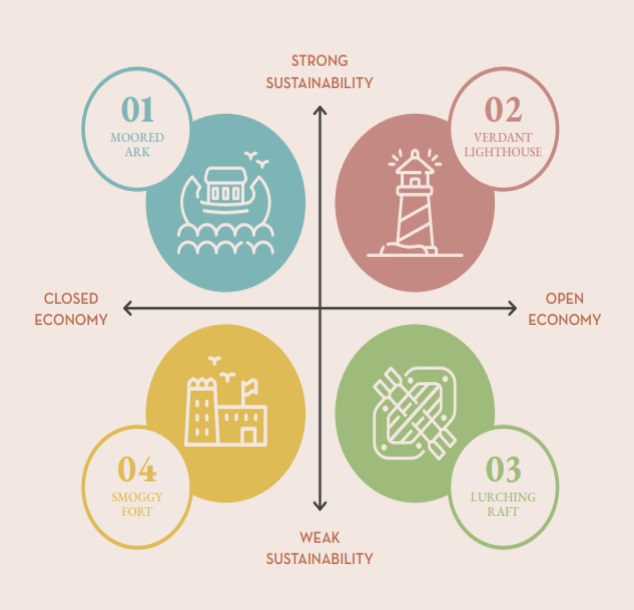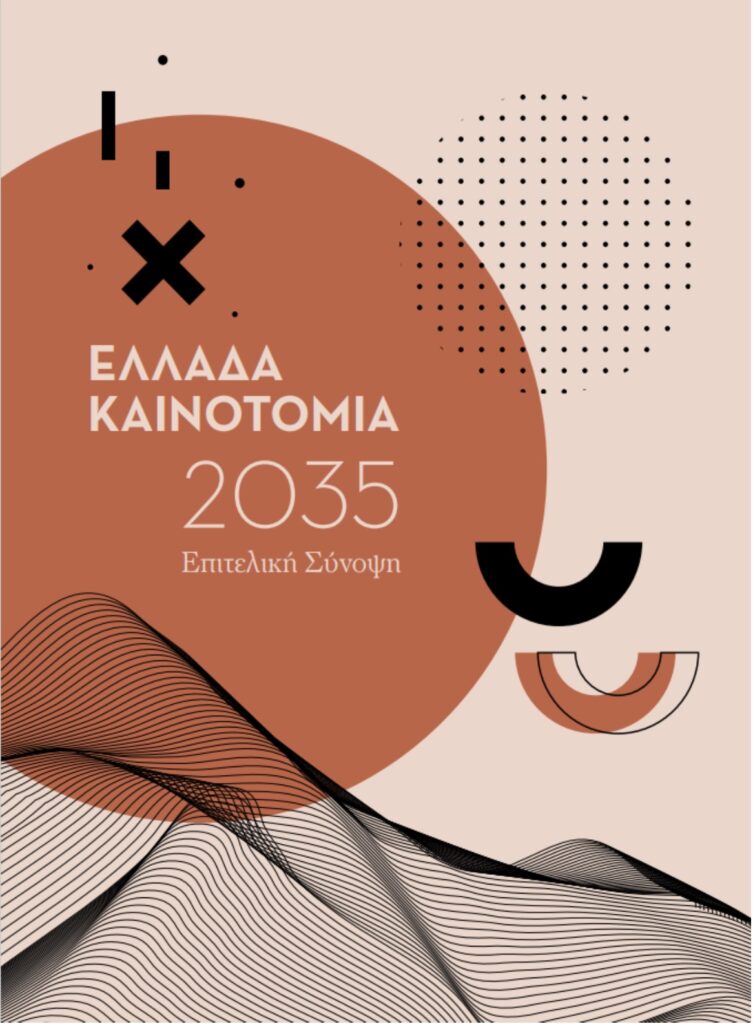The main output of this work is the detection of the main trends, the identification of the key uncertainties, and finally the synthesis of four alternative futures scenarios concerning Greece in 2035. It should be stated that the scenarios presented in this edition are not predictions. These scenarios help us deal with uncertainty and not to forecast what might happen. Our actions and interactions, along with other natural phenomena independent of human intervention, shape the future in complex ways.
This study attempts to detect emerging issues of interest that may be indicating how present events might unfold in the long run. Our approach was therefore elaborated through the study of innovation structures; that is, through the identification of phenomena related to the formation of new start-ups, business models, R&D projects, policy priorities, acquisitions, sociocultural attitudes, and other observable events. To understand plausible future developments, and compose alternative scenarios, we began by studying such signals in direct relation to the past and present of the Greek innovation ecosystem.
As for HDBI, this work aims to highlight promising sectors in alternative, conflicting futures, and to offer diverse viewpoints on the changes ahead, unburdened by the usual linear future projections.
The research team followed a multifaceted methodology that entailed the steps of a standard strategic foresight process. The first step included various input methods (i.e., desk research, interviews with experts, a two-round Delphi, and a participatory workshop) for gathering information. The collected information was then analyzed via a number of methods (e.g., Trend Impact Analysis, Cross Impact Analysis) that provided new perspectives on the received input from the experts during the interviews. Finally, using the morphological analysis technique, four plausible scenarios for 2035 were composed based on a 2×2 combination of the diametrically opposed extreme states of the two most critical future uncertainties of the study’s theme of interest
An important role in the direction and evolution of the future of innovation will be the management of important issues such as demographics, the existence of enough suitable human resources, the adoption of “green” practices, the education system, the penetration of digital worlds, open access to data and knowledge and the operating framework of start-ups, while the adoption of sustainability policies with strong support from society and the formation of an open economy are considered strategic critical uncertainties.
Read all the study here.
Innovation 2035 Year of publication: 2022







